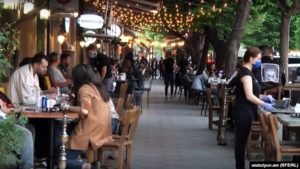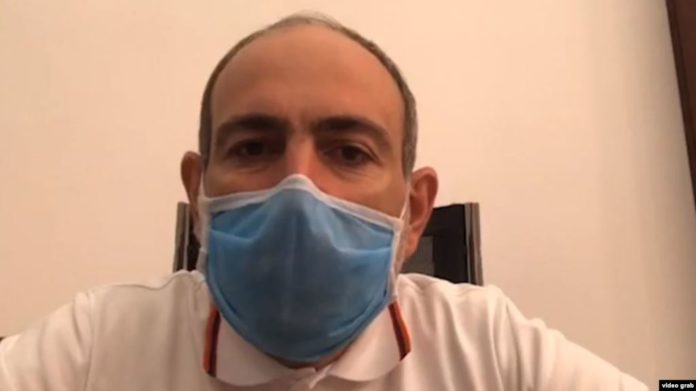YEREVAN (RFE/RL and Armenpress) — Prime Minister Nikol Pashinyan held businesses reopened by his government over the past month primarily responsible for the accelerating spread of coronavirus in Armenia which resulted in another daily high of COVID-19 cases and deaths on Sunday.
The Armenian Ministry of Health said on Monday, May 25, that as many as 452 people had tested positive for coronavirus in the past day, bringing to 7,113 the total number of confirmed cases in the country of about 3 million. The latest daily number of new infections is sharply up from the previous record high of 374 cases recorded on Friday.
With the ministry reporting 6 more deaths, the official death toll from the epidemic rose to 87. It does not include the deaths of 39 other people infected with the respiratory disease. The ministry claims that they died primarily as a result of other, pre-existing conditions.
Six such fatalities were registered on Sunday. One of the victims is a 31-year-old woman who gave birth about a week ago, according to a ministry statement.

Pashinyan took to Facebook late on Sunday to discuss this “very dangerous situation” and present further actions planned by the Armenian authorities.
“The main reason for the rise in the number of cases is industrial enterprises,” he said in a video address. “More than 75 percent and even 80 percent of [new] cases are registered in industrial enterprises and the services sector.”










